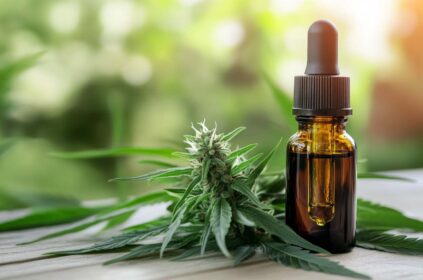Understanding CBD’s Potential Antioxidant Properties
In recent years, cannabidiol (CBD) has emerged as a star player in the wellness arena, captivating the interest of health enthusiasts worldwide. Derived from the cannabis plant, CBD stands out not only for its non-psychoactive nature but also for its potential therapeutic benefits—one of the most noteworthy being its robust antioxidant properties. This guide explores how CBD functions as an antioxidant, its interaction with free radicals, and the implications for aging and various health conditions.
What are Antioxidants and Free Radicals?
Antioxidants are essential allies in our bodies, helping to ward off damage caused by free radicals. Free radicals are unstable molecules created during normal metabolic processes or introduced from external sources such as pollution, smoking, and UV radiation. While our bodies naturally produce antioxidants to counteract these free radicals, an imbalance between the two can lead to oxidative stress—a condition linked to several chronic illnesses like cancer, heart disease, and neurodegenerative diseases.
The battle between antioxidants and free radicals takes place continuously in our bodies. When free radicals outnumber antioxidants, the cellular damage can manifest in various detrimental ways. Hence, understanding antioxidants, especially those found in compounds like CBD, provides valuable insights into maintaining health.
CBD as a Powerful Antioxidant
Recent research highlights CBD as possessing significant antioxidant potency, competing with some of the most recognized natural antioxidants. It effectively neutralizes free radicals through several mechanisms, which we’ll break down here:
- Electron Donor: CBD donates electrons to free radicals, stabilizing them and consequently reducing their potential to cause oxidative damage.
- Reactive Oxygen Species (ROS) Scavenger: CBD actively scavenges reactive oxygen species, lessening their harmful effects on cellular structures.
Studies have indicated that CBD can significantly diminish oxidative stress across various body tissues and organs, including the brain, liver, and heart.
Mechanisms of Action
Let’s look closer at how CBD operates on a cellular level:
- Reducing Lipid Peroxidation: CBD protects skin cells (keratinocytes) against UV radiation damage by decreasing lipid peroxidation—this process involves harmful compounds formed during oxidative stress that can disrupt cellular function.
- Boosting Endogenous Antioxidants: CBD encourages the production of natural antioxidants, such as glutathione, which is crucial for cellular defense against oxidative stress.
- Regulatory Functions: CBD modulates various markers associated with oxidative stress, lowering inflammatory responses and protecting cellular integrity.
Benefits of CBD’s Antioxidant Properties
With a solid understanding of how CBD acts as an antioxidant, let’s delve into its potential benefits:
Anti-Aging and Skin Health
Oxidative stress is often a culprit in the visible signs of aging, like wrinkles and fine lines. CBD’s potent antioxidant properties can help shield the skin from oxidative damage and promote a more youthful appearance. Research has shown that CBD may surpass vitamins E and C in its ability to counteract free radicals, making it a formidable ally against skin aging.
Neuroprotective Benefits
CBD’s role as an antioxidant opens exciting avenues for neuroprotection. Studies suggest that by reducing oxidative stress in the brain, CBD could help mitigate the effects of neurodegenerative diseases like Alzheimer’s. In animal models, CBD has been observed to promote neurogenesis (the growth of new neurons) and prevent cognitive decline, indicating its potential for enhancing memory and overall cognitive function.
Anti-Inflammatory and Anti-Cancer Effects
In addition to its antioxidant capabilities, CBD is known for its anti-inflammatory properties. This combination can yield significant implications for cancer therapy. Research has shown that CBD may induce apoptosis (programmed cell death) in certain cancer cells while being non-toxic to healthy cells. Such properties suggest that CBD could serve as an adjunct treatment in cancer management.
Cardiovascular and Metabolic Health
The implications of CBD’s antioxidant and anti-inflammatory properties extend to cardiovascular health as well. By mitigating oxidative stress, CBD can help protect the heart, potentially reducing the risk of diseases such as diabetes and heart complications. It assists in decreasing lipid peroxidation, which contributes to organ damage commonly associated with these conditions.
Conclusion
CBD’s antioxidant properties illuminate its potential as a versatile compound in health and wellness. From promoting skin health and aiding neuroprotection to supporting cardiovascular function, the benefits of CBD are diverse and compelling. To summarize:
- Consider Integrating CBD: Explore incorporating CBD products into your routine, whether through oils, gummies, or topical applications, to harness its antioxidant benefits.
- Consult with Professionals: Always discuss new supplement additions with a healthcare provider, particularly if you have pre-existing health conditions or are taking other medications.
- Stay Updated with Research: The field of CBD research is ever-evolving. Keeping informed about the latest findings can provide deeper insights into CBD’s full potential.
As you consider incorporating CBD into your health regimen, take actionable steps by starting with a low dose and gradually increasing it while monitoring your body’s response. Always opt for high-quality products from reputable sources, ensuring they undergo third-party testing for purity and potency.
By understanding and utilizing the antioxidant properties of CBD, you can proactively enhance your well-being and potentially stave off various age-related and chronic conditions.
Key Actionable Tips
- Begin Small: Start with low doses to gauge your body’s response.
- Select Quality: Choose CBD products that are verified for their quality and efficacy.
- Synergize Your Antioxidants: Mix CBD with other antioxidants like vitamins C and E to amplify its health benefits.
Engaging with this knowledge allows you to make informed decisions about hemp-derived products and their role in promoting a healthier lifestyle.
For the latest insights and tips on hemp and CBD, visit our blog or explore our resources at mycbdadvisor.com.





















